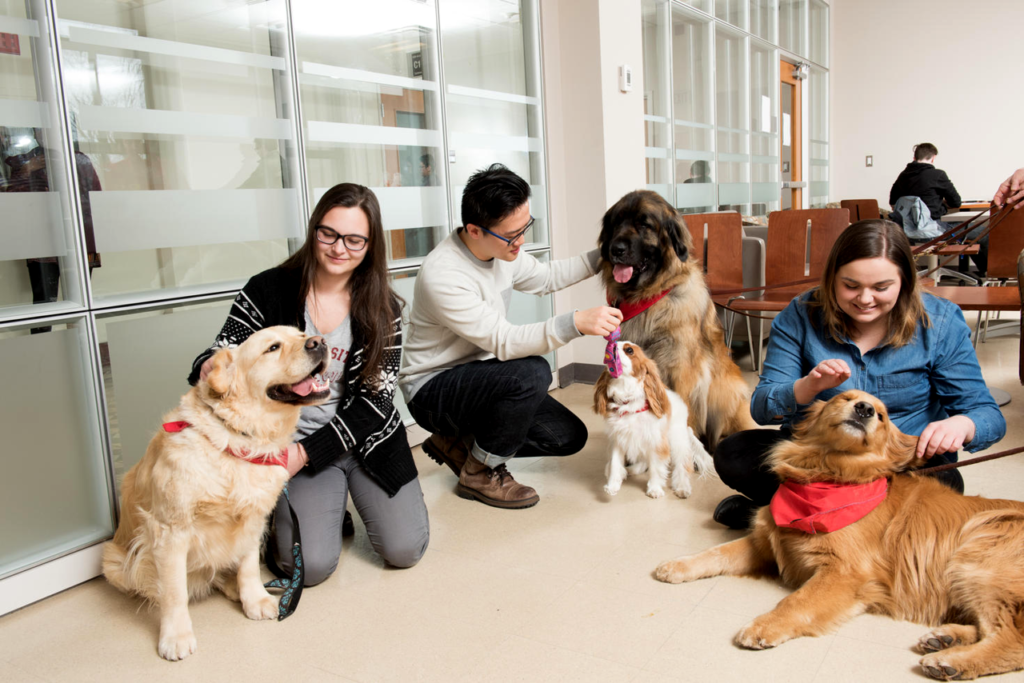Pet owners worldwide share a common concern – the health and well-being of their furry companions. As our pets cannot communicate their ailments verbally, owners must be vigilant about recognizing symptoms and preventing common pet diseases. In this article, we’ll delve into the various diseases that often affect pets, explore their symptoms, and discuss effective prevention strategies.
Read More: Top 8 Benefits of Pet Health Supplements
Contents
- 1 Common Pet Diseases: Symptoms and Prevention
- 2 Common Pet Diseases
- 3 Infectious Diseases
- 4 Parasitic Infections
- 5 Respiratory Issues
- 6 Skin Conditions
- 7 Urinary Tract Infections
- 8 Dental Health
- 9 Gastrointestinal Issues
- 10 Behavioral Disorders
- 11 Obesity in Pets
- 12 Diabetes in Pets
- 13 Arthritis in Pets
- 14 Pet Health and Lifestyle
- 15 The Final Words
Common Pet Diseases: Symptoms and Prevention

Pet health is a significant aspect of responsible pet ownership. Beyond providing love and care, understanding and addressing common pet diseases play a crucial role in ensuring a long and happy life for our animal friends. Let’s explore the world of common pet diseases, their symptoms, and how preventive measures can keep our pets healthy and thriving.
Common Pet Diseases
Understanding the Symptoms
Recognizing signs of illness in pets can be challenging, given their inability to express discomfort verbally. However, observant owners can pick up on subtle behavior and physical appearance changes.
Behavioral Changes
Pets may exhibit changes in behavior when unwell. This includes lethargy, changes in appetite, and altered sleep patterns. Observing these shifts helps in early detection and intervention.
Physical Symptoms
Physical symptoms vary based on the disease but can include coughing, vomiting, diarrhea, and changes in posture or gait. Regularly checking for these signs aids in prompt medical attention.
Prevention Strategies
Preventing common pet diseases involves a proactive approach to their overall well-being.
Regular Veterinary Check-ups
Scheduled visits to the veterinarian allow for early detection of potential health issues. Routine check-ups include vaccinations, dental examinations, and discussions about dietary needs.
Vaccinations
Vaccinations are pivotal in preventing infectious diseases. Following a tailored vaccination schedule ensures that pets are protected against illnesses like parvovirus, feline leukemia, and canine distemper.
Infectious Diseases
Key Infectious Pet Diseases
Understanding infectious diseases is vital for pet owners to safeguard their pets’ health.
Parvovirus
Parvovirus is a highly contagious viral illness affecting dogs. It causes severe gastrointestinal issues and requires immediate medical attention.
Feline Leukemia
This viral infection affects cats, compromising their immune system. Vaccination is key to preventing feline leukemia.
Canine Distemper
Affecting dogs, canine distemper is a contagious and serious disease. Vaccination and maintaining a hygienic environment are crucial preventive measures.
Preventive Measures
Preventing infectious diseases involves a combination of vaccinations and maintaining hygiene.
Vaccination Schedules
Consulting with a veterinarian helps create a customized vaccination schedule tailored to a pet’s specific needs.
Hygiene Practices
Regular cleaning of living spaces, proper waste disposal, and maintaining hygiene during outdoor activities contribute to preventing infectious diseases.
Parasitic Infections
Types of Parasites Affecting Pets
Parasites like fleas, ticks, and worms can cause significant discomfort to pets.
Fleas and Ticks
These external parasites can lead to itching, and skin irritation, and even transmit diseases. Using preventive treatments helps keep them at bay.
Worms
Internal parasites like roundworms and tapeworms affect pets’ digestive systems. Regular deworming is crucial to prevent infestations.
Preventing Parasitic Infections
Taking proactive measures is key to preventing parasitic infections.
Regular Deworming
Following a deworming schedule, as advised by a veterinarian, helps eliminate and prevent internal parasites.
Flea and Tick Prevention Methods
Using vet-approved flea and tick prevention methods, such as topical treatments or collars, helps protect pets from these troublesome parasites.
Respiratory Issues
Common Respiratory Problems
Respiratory problems in pets can range from mild to severe.
Kennel Cough
This contagious respiratory infection affects dogs, especially those in close quarters. Vaccination and a clean environment help prevent kennel cough.
Feline Asthma
Cats can suffer from asthma, causing difficulty in breathing. Identifying early symptoms, such as wheezing, allows for timely medical intervention.
Promoting Respiratory Health
Maintaining a clean living environment is crucial for preventing respiratory issues in pets.
Clean Living Environments
Regular cleaning of living spaces, and removing dust and allergens, contribute to a healthy respiratory system in pets.
Identifying Early Symptoms
Being attentive to early signs of respiratory distress allows for prompt veterinary care.
Skin Conditions
Common Skin Problems
Skin conditions in pets can result from allergies, infections, or environmental factors.
Allergies
Pets can develop allergies to food, plants, or environmental elements. Identifying and eliminating allergens helps manage skin allergies.
Dermatitis
Inflammation of the skin, known as dermatitis, can be caused by various factors. Proper grooming practices and a balanced diet contribute to healthy skin.
Maintaining Healthy Skin
Regular grooming and a nutritious diet are essential for promoting healthy skin in pets.
Proper Grooming Practices
Regular brushing, bathing, and checking for skin abnormalities aid in the early detection of potential issues.
Quality Nutrition for Skin Health
Providing a well-balanced diet rich in essential nutrients supports overall skin health in pets.
Urinary Tract Infections
Recognizing UTI Symptoms
Urinary tract infections (UTIs) can occur in pets, causing discomfort and health issues.
Frequent Urination
Pets with UTIs may exhibit increased frequency in urination. Observing such changes prompts a visit to the veterinarian.
Discomfort While Urinating
Expressing discomfort during urination is another sign of a potential UTI in pets.
Preventing UTIs
Preventive measures focus on maintaining urinary health in pets.
Providing Ample Water
Ensuring pets have access to clean and ample water promotes proper hydration and reduces the risk of UTIs.
Regular Bathroom Breaks
Promptly taking pets outdoors for bathroom breaks prevents the buildup of harmful bacteria in the urinary tract.
Dental Health

Importance of Oral Hygiene
Oral health is integral to a pet’s overall well-being.
Gum Disease
Gum disease can lead to pain, tooth loss, and systemic health issues in pets.
Tooth Decay
Regular dental care, including brushing and professional cleanings, prevents tooth decay in pets.
Promoting Dental Wellness
Maintaining oral hygiene is essential for preventing dental issues in pets.
Brushing Your Pet’s Teeth
Regular brushing helps remove plaque and prevents the buildup of tartar.
Dental Check-ups
Scheduled dental check-ups with a veterinarian are crucial for identifying and addressing oral health concerns.
Gastrointestinal Issues
Common GI Problems
Digestive issues are prevalent among pets and can be caused by various factors.
Vomiting
Occasional vomiting may be normal, but persistent vomiting requires veterinary attention.
Diarrhea
Changes in diet, infections, or underlying health issues can lead to diarrhea in pets.
Dietary Measures for GI Health
Maintaining a healthy digestive system involves mindful dietary choices.
Choosing the Right Pet Food
Selecting high-quality, nutritious pet food supports digestive health.
Avoiding Harmful Treats
Limiting treats and avoiding human foods harmful to pets contribute to a healthy gastrointestinal system.
Behavioral Disorders
Identifying Behavioral Issues
Pets may exhibit behavioral issues due to stress, anxiety, or underlying health problems.
Anxiety
Common signs of anxiety in pets include excessive barking, destructive behavior, and withdrawal.
Aggression
Aggressive behavior can be a sign of fear, pain, or territorial instincts.
Addressing Behavioral Concerns
Positive reinforcement and a supportive environment help address behavioral problems.
Positive Reinforcement Training
Reward-based training techniques positively reinforce desired behaviors in pets.
Creating a Secure Environment
Providing a safe and secure environment reduces stress and mitigates behavioral issues.
Obesity in Pets
Health Risks of Obesity
Obesity in pets can lead to various health complications.
Diabetes
Overweight pets are at a higher risk of developing diabetes.
Joint Problems
Excess weight puts strain on joints, leading to arthritis and mobility issues.
Preventing Pet Obesity
Maintaining a healthy weight involves a combination of diet and exercise.
Balanced Diet
Feeding pets a balanced and portion-controlled diet helps prevent obesity.
Regular Exercise
Engaging in regular physical activity supports weight management and overall well-being.
Diabetes in Pets
Signs of Diabetes
Diabetes can affect pets, requiring careful management.
Excessive Thirst
Increased water consumption may indicate diabetes in pets.
Weight Loss
Unexplained weight loss is a common symptom of diabetes in pets.
Managing Diabetes
Controlling diabetes involves dietary adjustments and, in some cases, insulin therapy.
Controlled Diet
Tailoring a pet’s diet to manage blood sugar levels is crucial in diabetes management.
Insulin Therapy
Pets with diabetes may require insulin injections, administered under veterinary guidance.
Arthritis in Pets
Symptoms of Arthritis
Arthritis is common in aging pets, affecting their joints and mobility.
Limping
Pets with arthritis may limp or show reluctance to move.
Stiffness
Stiffness, especially after rest, is a common sign of arthritis in pets.
Supporting Arthritic Pets
Caring for arthritic pets involves providing comfort and support.
Joint Supplements
Supplements containing glucosamine and chondroitin support joint health in arthritic pets.
Comfortable Bedding
Providing soft and supportive bedding helps alleviate discomfort for pets with arthritis.
Pet Health and Lifestyle

Holistic Approaches
Holistic approaches to pet health include natural remedies and alternative therapies.
Herbal Supplements
Some pet owners explore herbal supplements to support overall health, under the guidance of a veterinarian.
Alternative Therapies
Acupuncture, massage, and physical therapy are alternative therapies that can benefit certain pets.
Creating a Healthy Lifestyle
Beyond medical care, promoting a healthy lifestyle contributes to a pet’s well-being.
Adequate Playtime
Engaging pets in regular playtime activities ensures mental stimulation and physical exercise.
Mental Stimulation
Providing toys and activities that stimulate a pet’s mind is essential for their overall happiness.
Read More: Pet Care Tips for Dogs 2024
The Final Words
Understanding common pet diseases, recognizing symptoms, and implementing preventive measures are essential aspects of responsible pet ownership. By staying informed and proactive, pet owners can ensure a high quality of life for their beloved companions. Regular veterinary check-ups, vaccination schedules, and a focus on holistic well-being contribute to a healthy and happy life for pets.




















